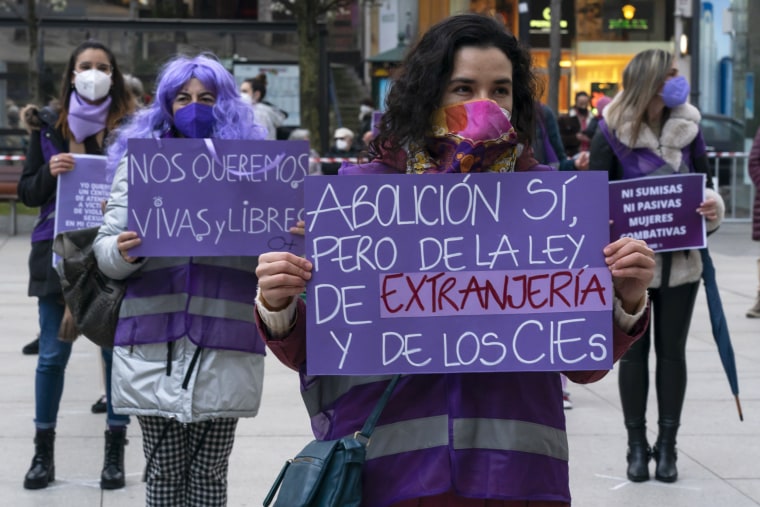Spain is making major moves to advance gender equality.
Currently, the country has the highest share of women in government – 63 percent – compared to any other in the world. In addition, three of four vice presidents of the country are women.
Spanish Prime Minister Pedro Sanchez told Mika Brzezinski on Wednesday’s “Morning Joe” that he is trying to ensure gender equality transfers to all other aspects of life, including in business, education and parental leave.
The country, which has an existing gender wage gap of 20 percent, recently passed a law on equal payment for men and women. Spain has also increased the minimum wage over 30 percent in the last year and increased maternity and paternity leave to 16 weeks.
“We’re very committed to gender equality …this is not an ideological question, this is a fundamental question, a human rights question,” said Sanchez.

While the U.S. has made strides in gender representation in government (including electing Kamala Harris, women currently hold 26.7 percent of the seats in Congress. When it comes to the wage gap, American women earn 84 percent compared to men, according to Pew Research Center.
In terms of parental leave in the U.S., while a small handful of states have enacted versions of a paid leave law, there is no federal American family leave. At best some workers qualify for 12 weeks of unpaid “job protection” under the federal Family and Medical Leave Act.
RELATED: Mika: Why gender equality is more than a right
Paid maternity leave is guaranteed in every country except the United States and Papua New Guinea, according to a March report from the World Economic Forum.
"As far as we’ve come over the past 25 years, I know there is a long road ahead for true equity across business, politics, education, and all facets of life," Brzezinski said earlier this week. “…There are many ways to define of gender equality, but pay equity, equal representation in positions of power and having the authority to call the shots are all vital facets of this key global metric. And they all lead to equal opportunities for success.”
